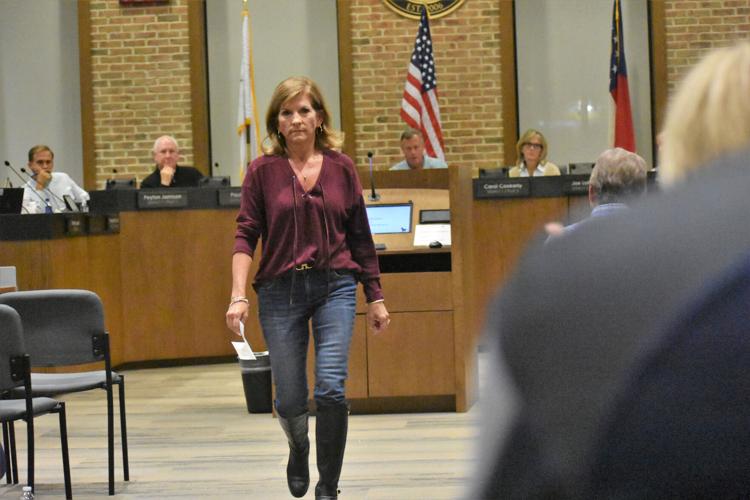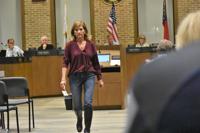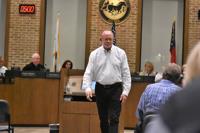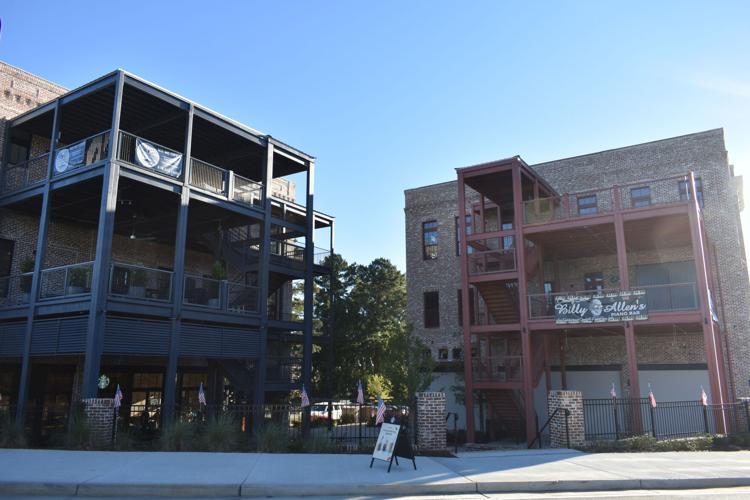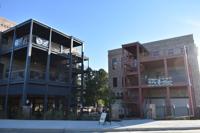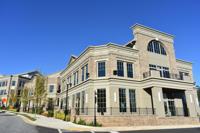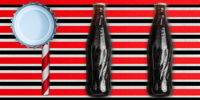MILTON, Ga. — The Milton City Council labored for seven hours Oct. 18 to strike a balance over amendments to the city’s alcohol beverage licensing ordinance.
The action drew a packed house at City Hall, and many spoke against changes that would impact existing businesses, like Painted Horse Winery and Vineyards and Billy Allen’s, a piano bar and restaurant set to open soon in downtown Crabapple.
Painted Horse Winery owner Pamela Jackson is no stranger at City Hall.
In August, the council approved a permit request to allow the winery to host certain events like kid’s birthday parties or other “agricultural-related” activities, temporarily ending months of heated discussions among the council, the business and surrounding homeowners about how much can go on at the property.
Now before the council again, Jackson said it seemed like a “very personal vendetta” was being taken out on her and appealed to council members Joe Longoria and Rick Mohrig to visit the winery before making a decision.
She took special issue with a proposal adding language that would limit consumption on-premises to no more than 20 feet immediately adjacent to a farm winery’s tasting room. Jackson said it would affect her ability to host education classes on her property, especially amid the ongoing COVID-19 pandemic.
“You all have done everything you can to squeeze me as tight as you can to make it as difficult as you possibly can,” Jackson said. “I’m not even sure what to say anymore. … I would ask you to please turn this down and give me a chance to make it.”
Ray Parker, who does not live in Milton but supports Jackson, said he didn’t understand why the council would impose such a restriction.
“Why? Why are we doing this? Why are we making them sit on the patio?” Parker asked. “Is somebody angry at her that they want people to sit on the patio? Why? She’s got all this beautiful property. So those little things like that, they’re little to you but they’re deathblows to her. … She’s been here for three years. You’re going to put her in a situation where she can’t survive.”
The council ultimately approved the amendment.
Council members also approved an amendment requiring that a farm winery’s tasting room be at least 50 feet from a property line and no more than 2,500 square feet in size. Yet another amendment sets farm winery tasting hours from 11 a.m. to 8 p.m. Monday through Saturday and from 12:30 p.m. to 7 p.m. Sunday.
Before the council voted, one resident, Tony Rich, spoke in favor of shorter hours of operation.
“Once the line is crossed and you start selling wine by the glass into the evening hours, the winery becomes more like a bar and less like a true farm winery,” Rich said. “That type of business belongs downtown and not in our quiet, residential neighborhood.”
In other matters related to the alcohol ordinance, the council approved an amendment allowing “ancillary tasting” of beer and wine in retail package stores in amounts allowed by state law. But, it limited the hours to from 9 a.m. to 10 p.m. Monday through Saturday. Liquor tastings would only be allowed in distilleries and micro-distilleries.
Another amendment limits establishments from offering “bring your own beer,” or BYOB, opportunities to beer and wine only. The practice would be allowed from 9 a.m. to one hour before closing Monday through Saturday and from 11 a.m. to one hour before closing Sunday.
The council spent a large portion of the meeting discussing, and then approving, an amendment to prohibit establishments with a 70-30 alcohol-food ratio from remaining open until 2 a.m. Monday through Saturday but made an exception for Billy Allen’s.

Billy Allen’s owner Billy Allen walks back from the podium at an Oct. 18 Milton City Council meeting, where he pleaded with council members to allow him to continue with his plans to offer a 70-30 alcohol-food ratio and remain open until 2 a.m. so he can entertain the community when his piano bar and restaurant opens in downtown Crabapple.
When it opens, Billy Allen’s will be allowed to renew its alcohol license under the same terms and conditions as when it was approved, meaning it will be able to have a 70-30 ratio and remain open until 2 a.m.
Owner Billy Allen said these conditions were crucial to the success of his business, adding that his lease is for 20 years.
“My intention to come here was initially by invitation…,” Allen said. “I was simply brought here to entertain. …. I ask you with all due respect to please consider those things and allow me to do what I came here to do.”

Several businesses, including Starbucks and Billy Allen's, have already moved or are about to move into the Market District Crabapple development.
The audience applauded Allen as he walked back to his seat, but resident Mary Cronk said she supported the city’s efforts to tighten its alcohol regulations.
Before the meeting, she sent the council information on Cumming, Johns Creek, Roswell and Sandy Springs’ alcoholic beverage ordinances and said most neighboring cities allow a 50-50 alcohol-food ratio that applies to eating establishments and brewpubs.
Cronk said Alpharetta has a 60-40 alcohol-food ratio for a wine bar, and Atlanta is the only other nearby city with a higher alcohol-food ratio. While city officials say they oppose allowing bars in Milton, Cronk said the city is awfully close to the 75-25 alcohol-food ratio that constitutes a bar.
“Allowing an establishment to have an alcohol-to-food ratio so close to that of a bar does not seem to be in keeping with our city’s values,” Cronk said. “I ask you to please reconsider those ratios and lower it to something that’s closer to what our neighboring cities have….”
The last few amendments the council approved require that any establishment’s application for a new alcohol license be advertised on the property and in a local newspaper; strike the definition of city food markets, courtyard markets, food halls and food hall cafes as current options for alcohol-related licenses; and prohibit “liquor selling establishments” such as package stores from selling CBD products, vaping products, “games of chance” and/or video games.
Although not all the votes were unanimous, the council reserved the right to revisit the changes in the future.
The city currently has a moratorium on new alcohol applications for craft beer, wine markets, limited tap establishments and limited-service restaurants. It does not apply to businesses that are renewing their licenses, are already licensed, or have been working with city staff on alcohol applications.
